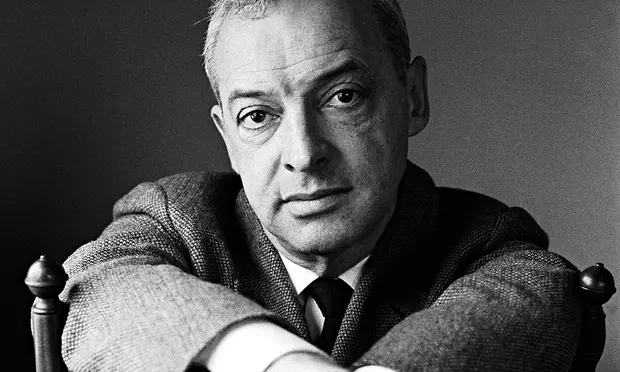Saul Bellow: Exploring the Dual Identity of a Canadian-American Literary Luminary
What is Saul Bellow best known for?,What book did Saul Bellow win the Nobel Prize?,For which work Soul Below got Nobel Prize in 1976?,Saul Bellow stands as an iconic figure in twentieth-century literature, revered for his profound exploration of the human condition. His works delve into themes of identity, belonging, and the complexities of modern life, reflecting the unique perspective of a Canadian-American author. This essay examines Bellow’s significant contributions as a writer, analyzing his major works, thematic explorations, and lasting influence on literature and culture.
Early Life and Background:
Born on June 10, 1915, in Lachine, Quebec, Canada, Saul Bellow was raised in an immigrant Jewish family that later settled in Chicago, Illinois. This upbringing, straddling both Canadian and American cultures, profoundly influenced Bellow’s worldview and literary sensibilities. Throughout his life, he grappled with questions of identity and cultural displacement, themes that permeate his literary works.
Literary Career and Major Works:
Bellow’s literary journey commenced with his debut novel, “Dangling Man,” published in 1944, followed by a series of critically acclaimed works that established him as a leading voice in American literature. Notable among these is “The Adventures of Augie March” (1953), which introduced readers to a vibrant protagonist navigating the complexities of American life.
Continuing his exploration of identity and the human condition, Bellow crafted significant works such as “Herzog” (1964), “Humboldt’s Gift” (1975), and “The Dean’s December” (1982). His writing, characterized by wit, erudition, and psychological depth, garnered widespread acclaim and earned him the Nobel Prize in Literature in 1976.
Themes and Philosophical Underpinnings:
Bellow’s novels are marked by profound meditations on identity, belonging, and the search for meaning in a rapidly changing world. His characters often grapple with questions of ethnic, cultural, and national identity, mirroring Bellow’s own experiences as a Canadian immigrant in America.
Also Read-
- Carson McCullers: A Literary Exploration of Isolation, Identity, and Empathy
- Jack Kerouac: Shaping American Literature with Spontaneity and Spirituality
- John Updike: Influencing American Literature with Depth and Grace
Existential angst and the quest for authenticity are recurring themes in Bellow’s oeuvre, as characters confront the absurdity and uncertainty of existence. Themes of mortality, time, and the human condition permeate his narratives, prompting readers to contemplate life’s mysteries and the fleeting nature of human endeavor.
Literary Style and Narrative Technique:
Bellow’s literary style is characterized by its richness, complexity, and linguistic prowess. His prose is infused with dense allusions, philosophical insights, and vivid imagery, reflecting his deep engagement with the Western literary tradition. Meanwhile, his narrative technique is fluid and versatile, seamlessly blending multiple perspectives and narrative strands to create a multifaceted portrayal of human experience.
Legacy and Influence:
Saul Bellow’s contributions to literature are enduring, with his novels continuing to resonate with readers and writers alike. His profound insights into the human condition and masterful storytelling have left an indelible mark on the literary landscape. Moreover, Bellow’s influence extends beyond literature, shaping popular culture and contributing to a deeper understanding of the complexities of identity and belonging in a multicultural society.
Conclusion
Saul Bellow’s legacy as a Canadian-American author is characterized by his profound exploration of identity, belonging, and the human condition. Throughout his literary career, Bellow’s works have captivated readers with their depth, insight, and linguistic prowess. His exploration of the dual identity of being both Canadian by birth and American by upbringing has provided a unique perspective on the complexities of cultural assimilation and the immigrant experience. Bellow’s enduring influence on literature and culture serves as a testament to the power of storytelling to illuminate the human experience and provoke thought and reflection.
FAQ:
1. What are some of Saul Bellow’s most famous works?
Saul Bellow’s most famous works include “The Adventures of Augie March,” “Herzog,” “Humboldt’s Gift,” and “The Dean’s December.”
2. What themes does Saul Bellow often explore in his novels?
Bellow’s novels frequently explore themes of identity, belonging, existential angst, and the search for meaning in a rapidly changing world.
3. How has Saul Bellow’s background as a Canadian-American influenced his writing?
Bellow’s dual identity as a Canadian immigrant living in America has provided him with a unique perspective on themes of cultural displacement, assimilation, and the complexities of belonging.
4. What literary style is Saul Bellow known for?
Saul Bellow is known for his rich, complex prose, infused with philosophical insights, vivid imagery, and linguistic prowess.
5. What is Saul Bellow’s lasting legacy in literature?
Saul Bellow’s enduring legacy lies in his profound exploration of the human condition and his ability to capture the complexities of identity and belonging in a multicultural society. His works continue to resonate with readers and writers, inspiring thought and reflection on the nature of existence and the search for meaning.
















